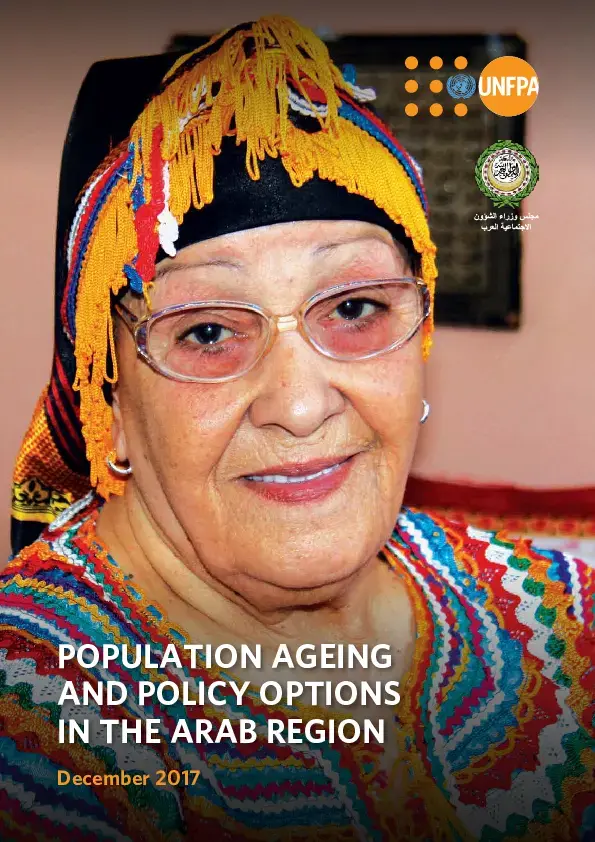The number of older people is growing fast in the Arab Region. According to the UN Population Division, the region’s population aged 60 and older (60+) is going to almost double in 15 years, increasing from 27 million in 2015 to 50 million in 2030, and by 2045, increasing to more than 80 million. This is a significantly large number considering that Egypt’s total population, where 1 in 4 Arabs live, was 84 million in 2010. Population ageing is a global trend. Today, 8% of world population is 65 years and older and 12% is age 60+. In the Arab Region, where the retirement age is 60 for most countries, 8% of the population is age 60+ and it is expected to reach 15% by 2045. It is often thought that ageing is an issue for more developed countries and not developing countries, but that is certainly not the case for the Arab region. Between 2000 and 2045, as shown in Figure 1, the number of people age 60+ in both Mashreq and Maghreb is going to increase fivefold and the increase will be six fold for the group of least developed countries. (See Table 1, page 8, for country groupings and more data.)
Population aging and policy options in the Arab region

Publisher
Number of pages
16
Author
UNFPA
Publications
Population aging and policy options in the Arab region
Publication date
11 February 2019

